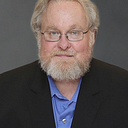Kielbasa Brings Community Together in Toledo
“Tell me what you eat and I’ll tell you who you are.” — Anthelme Brillat-Savarin
Given that 1,300 people attended the Polish-American Community of Toledo’s (PACT’s) 8th Kielbasa Cook-Off on Sunday, February 24th, Toledo Polish-Americans are a community who appreciate the garlicky pork sausage of Poland and Polonia, and who want to share their cuisine with each other and the broader community.
Held at the hall of St. Clement Roman Catholic Church on Toledo’s northwest side, the event featured kielbasa provided by nine amateur producers. It cost $5.00 for non-members of the sponsoring organization to get in the door, and $3.00 for members. I arrived just before 1PM and the place was already getting packed (pun intended). According to the press release from PACT announcing the event, “(m)oney raised by the Kielbasa Cook-Off will go to fund PACT’s scholarship fund and other charitable donations, as well as fund the eventual development of a Polish Community Center.”
The best deal for food tickets was the 50 tickets for $20.00 offer, which I purchased. Each sample of kielbasa cost just one ticket, so a lot of sausage could be had for your 20 bucks. Also, for two tickets, you could get sweet and sour cabbage or mizeria (a salad of thinly sliced cucumbers in cream sauce). A few tickets also purchased a slice of Polish coffee cake (placek) or a pączek.
But the star of the show was the kielbasa. The nine sausage makers were Busia’s Old Fashion Kiełbasa, Z Best Kielbasa, Ski’s Sausage, Dziadzia & Busia’s Old Fashion Recipe, Zbilski Kielbasa, Oink K. Basa, Team Kazlo, Chet’s Best Kielbasa, and Lenny & Spud’s Fresh Kielbasa.
The kielbasa purveyors were arranged around the perimeter of the hall, and customers came to them with plates already partially filled with the other delicacies. Each piece of kielbasa contained a toothpick with a number, so patrons could vote on their favorite. Importantly, professional sausage-makers were excluded from the event, because, “(w)e want to taste that secret family recipe for kielbasa,” according to Jack Sparagowski, the Chairman of PACT.
The sausages varied by casing style (some had the traditional snap of natural casing, others did not), fineness of the grind of the meat, fat content, and spice combinations (garlic, salt, pepper, and marjoram are common ingredients in kielbasa, but other spices were evident in some of the offerings). The sausages were served from large warmers, and had been boiled, and in some instances browned a little.
Interestingly, I did not see any smoked kielbasa on offer. Perhaps Polish-Americans prefer fresh to smoked kielbasa. Once when I was in a Polish market in Hamtramck, Michigan the bilingual checkout clerk would look up briefly at each customer and their purchases before deciding to speak Polish or English to them. He spoke English to me, and I asked him how he knew I wasn’t a native Polish speaker. “You’re buying fresh kielbasa,” he said. “Polish people buy smoked.”
Other Polish foods in frozen form were available for purchase to take home. Busia’s Pierogi Shack had frozen pierogi with various traditional and modern fillings available, as well as frozen soups such as chicken noodle and dill pickle.
Background music for the event was provided by the author (who is also the host of the Sunday Morning Polka Show of Northwest Ohio https://www.mixcloud.com/david-j-jackson/) and played over a speaker system. The music consisted of a sampling of polka music from Toledo bands from the past and present.
According to authors Patricia Harris, David Lyon, and Sue McLaughlin, “(o)ur attitudes, practices and rituals around food are a window onto our most basic beliefs about the world and ourselves.” By this standard, Toledo Polish-Americans believe in celebrating their foodways with each other, inviting in the broader community to enjoy them too, and using the profits from the endeavor to promote education.
